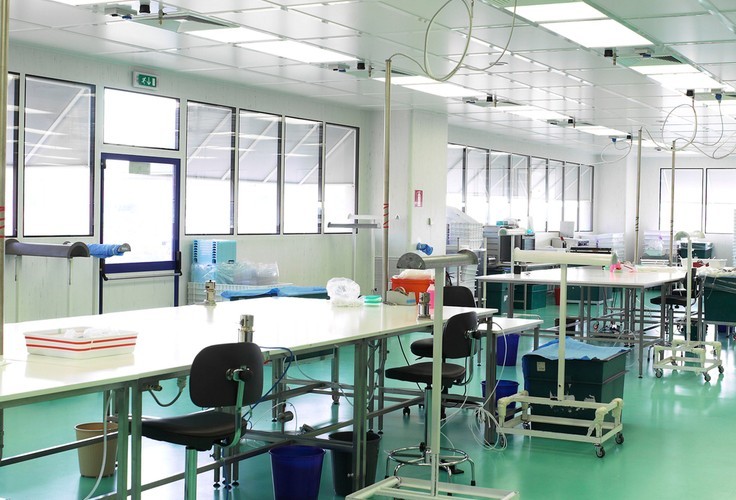
Centrifuges serve a critical purpose in laboratories, used to separate various components of samples for applications including purification, extraction of specific materials and concentration or desiccation of samples through removal of liquid solvents.
If not properly operated, maintained, and calibrated, centrifuges can pose safety risks to operators and other personnel in the area. This is because centrifuges function through extremely high-speed rotation of rotors placed on the centrifuge drive shaft. Proper centrifuge safety covers proper loading, balancing, operation, maintenance, inspection, and calibration, all of which we will discuss.
Loading and Balancing Rotors
Most types of lab centrifuge are built with one of two rotor formats: fixed angle or swinging bucket. With either type of rotor, proper loading and balancing is critical to maintain the safety of the operator and the integrity of the operation, as well as to prevent damage to equipment. When loaded with tubes, bottles, bags, or plates, rotors are naturally out of balance from their static condition. Many lab centrifuges have automatic imbalance detectors that prevent operation of the equipment if improperly loaded. Essentially, rotors should always be loaded symmetrically based on weight (not on volume). If there are an odd number of tubes or plates to load, include a balancing vessel filled with an equal amount of water. If you notice excessive vibration or noise during centrifuge operation, stop the process right away — it may indicate that a potentially dangerous malfunction is imminent.
Understanding Maximum Rotor Speed and Sample Volume
Centrifuges are available with a broad range of options, including floor-standing models (capable of high and ultra-high speeds) and benchtop models (which take up less space and are usually more versatile). When determining the necessary maximum rotor speed (which directly translates to the amount of g-force generated, and thus the separating capability of the centrifuge), it is important to understand the requirements of the application. In general, the higher the centrifuge speed, the smaller the particles it can extract and separate. Lower-speed centrifuges are suitable for whole-cell extractions, while the highest speeds — ultracentrifuges — are capable of DNA and RNA extraction.
In general, lower-speed centrifuges will have higher sample volume capacities, with higher-speed centrifuges necessitating lower volumes.
Rotor Inspection
Technical Safety Services features AL-TAR rotor inspection capabilities, ensuring maximum safety and reliability in lab centrifuge calibration and performance. Rotor lubrication points and possible locations of excessive wear are examined, as wells as, the potential wear on the drive system itself. Safety interlocks for imbalance, speed control, and door latch systems are also an integral part of maintenance. Calibration for centrifuges ensures accurate operation, consistent results, and maximum safety for personnel. Calibrations confirm sped accuracy, temperature control systems, and run times with comparison against NIST-traceable reference equipment.
Rotor Maintenance and Calibration Requirements
Regular lab centrifuge PM maintenance and calibration are among the most effective ways to extend the lifespan of equipment, ensure accurate results, prevent major repairs and shutdowns, and keep equipment running safely.
The core tenets of a routine maintenance plan include:
• Inspection and removal of dirt, dust, and spilled material
• Detailed inspection of the rotor and buckets (if present); any damage to the rotor beyond surface scratches means that the rotor must be replaced
• Inspection of door seals
• Check safety interlocks for proper operation
• Lubrication of rotor pins and buckets
• Cleaning and inspection of temperature control assemblies
• Calibration to include speed, time, and temperature verification
• Review regulatory and certification requirements annually to ensure continued compliance
Technical Safety Services has the knowledge and experience to keep critical lab equipment — including centrifuges — safe, certified, calibrated and maintained. Contact Technical Safety Services with any questions you may have.

